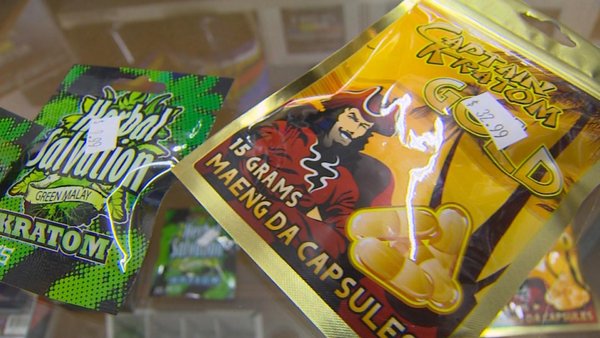Most general public doesn't know what kratom is, but it's possibly the most popular thing to sell in smoke shops nowadays. Here's a news article about Kratom from King 5 News in Washington:
PUYALLUP -- At the Chief Cottonmouth head shop in Puyallup, the clerks answer all kinds of questions about the drug-related pipes and products that line the store shelves.
More and more they are answering questions about a product that much of the general public has never heard of - Kratom.
“The Kratom would be pretty much toward the top of what we’re selling these days because it is so popular,” said Chief Cottonmouth employee Rose Marie Peyton. “I haven’t heard anything negative from taking Kratom products at all.”
Kratom has quickly taken over the shelf space in local tobacco stores and head shops that used to be occupied by “spice” and “bath salts," two forms of synthetic marijuana that were sold legally until banned by the Drug Enforcement Administration (DEA).
Kratom has risen in popularity based on word-of-mouth that it is legal and safe. It comes from the leaf of a tree in Thailand.

What does it do?
At low doses Kratom acts like a stimulant. It’s been described as “nature’s speedball.” But at higher doses the drug has the exact opposite effect – it acts like a sedative.
Peyton said customers buy it to wean themselves off of pain pills or other hard drugs.
“It’s actually doing a good thing,” said Peyton. “I’ve seen a lot of people come in here and turn around and stop taking pills and taking Kratom. It’s actually improved their lives.”
But Kratom is starting to show signs that it isn’t the carefree drug that some portray.
The DEA has placed Kratom on its list of Drugs and Chemicals of Concern, a watch list of substances that government chemists are studying.
“It’s always sold as if it’s safe,” said Selby Smith, Assistant Special Agent-in-Charge of the Seattle Office of the DEA. “But in all actuality it’s never been tested. It’s never been through FDA trials and we don’t know what it does to the human body.”
The DEA is studying Kratom as reports of emergency room visits by users rise. There have been reports of hallucination and delusions among users.
The DEA also said Kratom is addictive. Click here for the DEA's Kratom Drug Fact Sheet.
Smith said Kratom is following the same trajectory as spice and bath salts, which were legal until scientific studies unlocked the drugs’ dangers.
“It’s been around in Thailand for decades and it’s obviously been a problem for them because they banned it,” said Smith.
Did you like this article? Give it a Plus+





